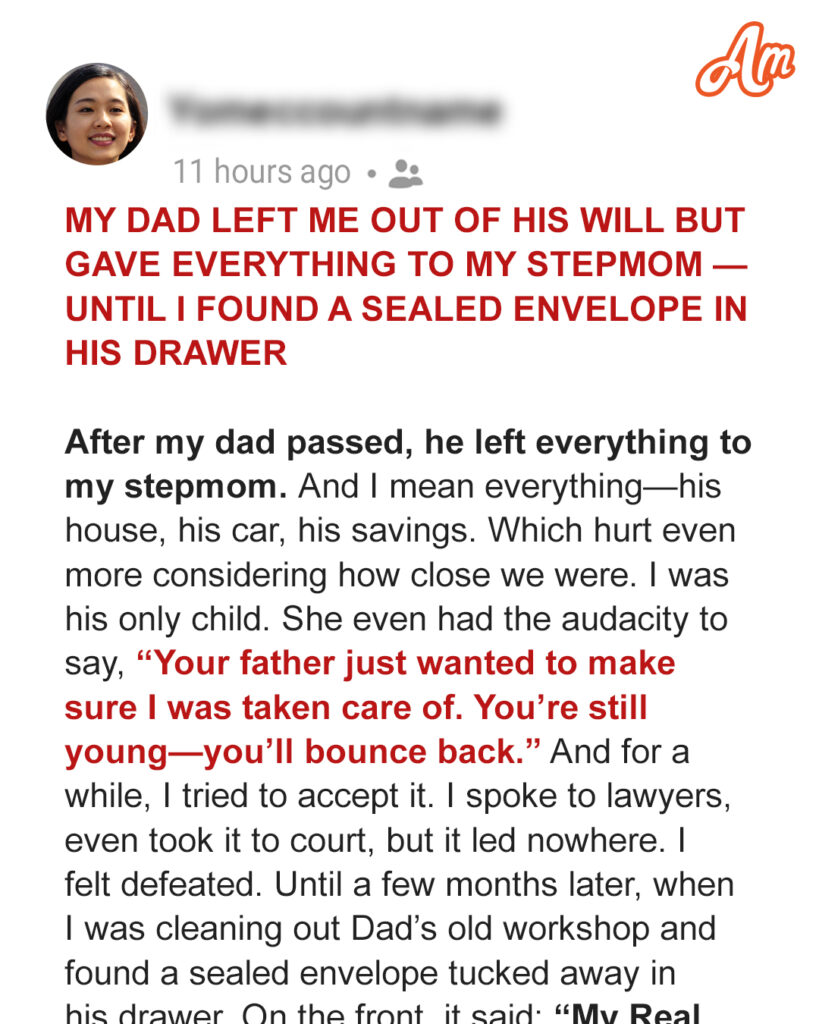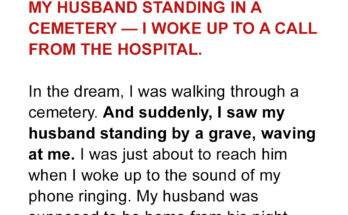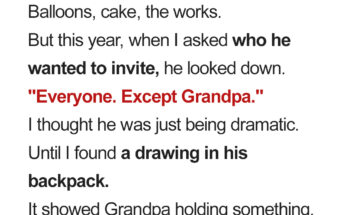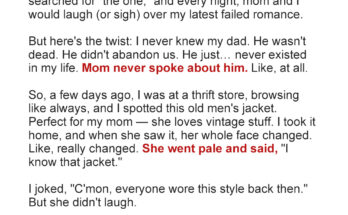They say grief comes in waves. But nothing prepared me for the tidal wave that hit when I found out my father’s will had left me out completely. It felt like a betrayal… until a dusty envelope buried in his old workshop revealed the truth he knew I’d need to uncover.
My dad and I shared the kind of bond that made other people envious. After Mom died from breast cancer when I was fourteen, we became each other’s whole world.
We figured out how to navigate grief together, trading cooking disasters for takeout, learning to do laundry without turning everything pink, and staying up late watching old westerns that Mom would have hated.
“Just you and me against the world, Lizzie,” he’d say, ruffling my hair as we’d sit on the porch swing during summer thunderstorms.
Dad never missed a single parent-teacher conference, soccer game, or dance recital. He even learned to French braid my hair by watching YouTube tutorials.
When I left for college, I worried about him being alone.
So, during our weekly Sunday night calls, I’d ask if he was dating. He’d just laugh it off.
“No one could compare to your mom,” he’d say. “Besides, I’ve got my woodworking to keep me company.”
I believed him because I knew how important his workshop was to him. I’d spent countless hours watching him work there. He taught me the difference between oak and maple and how to sand against the grain.
I was sure his workshop was keeping him busy and happy.
However, things changed during my senior year when he called with “news.” His voice sounded totally different that day.
“I’ve met someone, Lizzie,” he said. “Her name is Sandra.”
Three months later, they were married at the courthouse.
I met her exactly once before the ceremony. She was twenty years younger than Dad’s 62, with blonde highlights and designer clothes that seemed out of place in our modest home.
I tried to be happy for him. I really did. But every time I visited, something felt off.
Sandra was polite but distant, overly interested in Dad’s finances, and constantly referred to me as “his daughter” instead of using my name.
When I asked about his woodworking, she’d wrinkle her nose and mention the “mess” and “dust” it created.
Still, I smiled through awkward holiday dinners and sent birthday cards with cheerful messages. Dad seemed content, if not as boisterous as before, and that’s what mattered.
Then came the call that shattered everything. Dad had pancreatic cancer. Stage four. Maybe six months.
I flew home immediately and found him already diminished. He looked thinner and paler.
At that point, it was Sandra who was handling most of the logistics, including doctors, hospice, and paperwork.
I was grateful at first, until I noticed I was never allowed to be alone with him anymore.
“He needs his rest,” she’d say, appearing in doorways whenever our conversations went beyond small talk.
“Dad’s medications make him confused,” she’d explain when I mentioned he seemed distant.
When he passed away just three months after his diagnosis, I was devastated. Then came the second blow.
The reading of the will.

“As the sole beneficiary of the estate, Sandra will inherit all properties, financial assets, personal belongings, and business interests of the deceased.”
The lawyer’s monotone voice echoed in the sterile conference room as I struggled to process what I was hearing.
Not a single mention of me. Not one dollar. Not even my father’s guitars that he’d promised would be mine since I was 10.
I looked up from the mahogany table to see Sandra dabbing at dry eyes with a handkerchief. When she caught my gaze, the corners of her mouth twitched upward briefly before settling back into a practiced expression of grief.
“Your father just wanted to make sure I was taken care of,” she said as we walked out. I could sense the false sympathy in her voice. “You’re young, Elizabeth. You’ll bounce back.”
I left without a word. All I knew was that my father would never have cut me out of the will completely. The man who had taught me that family was everything wouldn’t have left me with nothing.
Something felt deeply wrong.
That night, I lay awake remembering a conversation we’d had just six months before his diagnosis. We’d been in his workshop, and he’d paused while sanding a cherry wood cabinet.
“Lizzie, I need your full legal name with the correct spelling and your current email address for something important,” he’d said.
“Planning to put a hit out on me, Dad?” I’d joked, and he’d laughed, but there had been something deliberate in the way he wrote down my information in his small leather notebook.
I also remembered the fireproof lockbox he kept in his home office desk. The one Sandra had quickly removed after the funeral. When I’d asked about it, she’d said it contained “just old tax documents” that she’d already reviewed.
The next morning, I called my friend Marcos, who was a lawyer.
“Is there any chance a will could be updated without being properly filed?” I asked after explaining my situation.
“It’s possible,” Marcos said thoughtfully. “Let’s request a copy of the will filed with the probate court. I want to see the dates and signatures.”
When the copy arrived, something immediately stood out. The will had been notarized just one week before my father’s death.
“Dad could barely hold a cup of water that last week,” I told Marcos. “He was on heavy pain medication and drifting in and out of consciousness.”
Marcos’s eyes narrowed. “There’s a possibility of undue influence here, or even forgery. We need to petition the court to investigate.”
Read More: https://thecelebritist.com/my-dad-left-me-out-of-his-will-but-gave


